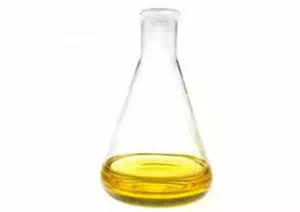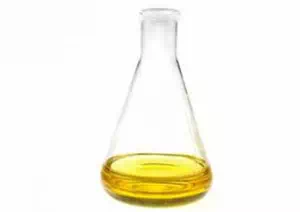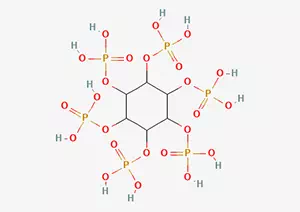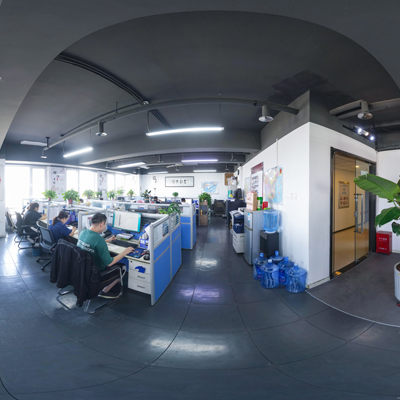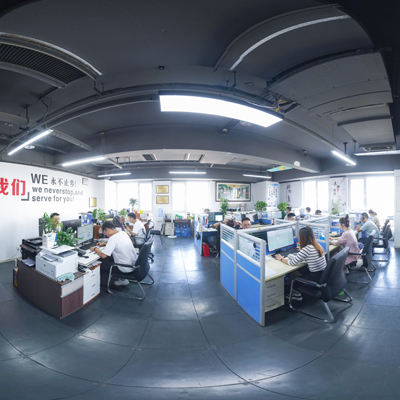What is Phytic acid CAS 83-86-3?
Phytic acid (CAS 83-86-3), as a natural organophosphorus compound extracted from plant seeds, has shown extensive application potential in multiple fields due to its unique chemical properties. Its strong chelating property enables it to form stable complexes with metal ions. This characteristic makes phytic acid shine in the field of food preservation. By inhibiting the oxidation reaction caused by metal ions, it effectively extends the shelf life of food. Meanwhile, phytic acid also has excellent antioxidant properties, which can protect the nutrients in food from oxidative damage and maintain the original flavor and nutritional value of the food.
In the field of medical treatment, phytic acid, due to its excellent biocompatibility and low toxicity, has been explored for use in drug carriers, sustained-release preparations, and as an adjunctive treatment for certain diseases, providing new research and development ideas for the pharmaceutical industry. In addition, phytic acid also performs well in metal rust prevention treatment. By forming a protective film to isolate the metal from the corrosive environment, it can slow down or prevent the rusting process of the metal. This characteristic has significant application value in the industrial field.
In daily chemical products, phytic acid also plays an irreplaceable role. Its natural and safe properties make phytic acid a preferred ingredient in many green and environmentally friendly daily chemical products, such as shampoos and skin care products, which can meet consumers' demands for health and safety.
It is worth mentioning that the safety of phytic acid has been verified through multiple strict toxicological experiments, ensuring its reliability in various fields of application. With the continuous improvement of people's awareness of health and environmental protection, phytic acid, as a green and sustainable functional raw material, has seen a sustained increase in market demand, especially demonstrating broad development prospects in the fields of green chemical engineering and healthy food. In the future, with the continuous advancement of technology and the continuous expansion of application fields, phytic acid is expected to play its unique advantages in more fields and contribute to the sustainable development of human society.
Phytic acid CAS 83-86-3 Use
Food industry
Antioxidants: They are used in oils and edible oils to inhibit oxidation and rancidity and extend the shelf life.
Preservation and color protection
Add 0.02% to 0.2% to canned fruits and vegetables, aquatic products and meat products to prevent Browning and microbial growth.
Chelating heavy metal ions (such as iron and copper) in beverages improves taste and safety.
Fermentation accelerators: Accelerate the production process of brewing and fermented foods, and enhance efficiency.
(2) The field of medicine
Disease treatment: It is used as an adjuvant treatment for diabetes and kidney stones, and inhibits the growth of cancer cells (such as breast cancer and colon cancer).
Antioxidant and cardiovascular protection: Eliminate free radicals, lower blood lipid concentrations, and prevent arteriosclerosis and myocardial injury.
Pharmaceutical preparations: As a sustained-release agent or chelating agent, it enhances the stability and targeting of drugs.
(3) Daily Chemicals and industry
Cosmetics: Added to toothpaste and face cream, it has the effects of whitening, moisturizing and exfoliating.
Metal treatment
Rust inhibitor: It can replace sodium cyanide in electroplating solutions to reduce environmental pollution.
Cleaning agent: Remove oxides from the metal surface and enhance the adhesion of the coating.
Polymer materials: Used in the production of anti-sticking agents for polyvinyl chloride, improving the performance of plastics.
Service
* Prompt reply and 24 hours online, professional team to provide best price and high quality product.
* Sample testing support.
* Every batch of products will be tested to ensureits quality.
*The packing also can be according the customers` requirment.
*Any inquiries will be replied within 24 hours.
*we provide Commerical Invoice, Packing List, Bill of loading, COA , Health certificate and Origin certificate. If your markets have any special requirements, let us know.

